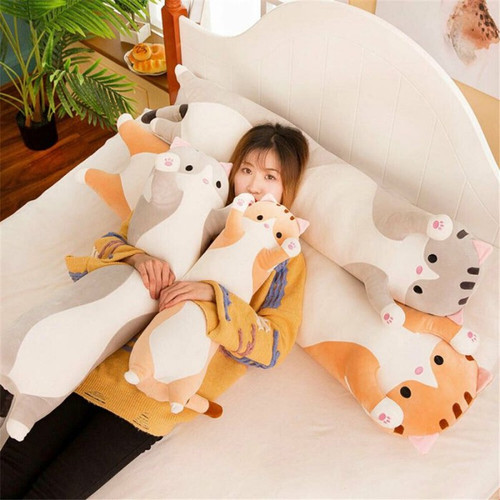
Contact with stuffed animals has significant emotional benefits and even health for our children. Cute stuffed animals are inseparable companions of the youngest children, as they are essential for their emotional and cognitive development. But why do they like it so much?
What are the benefits of stuffed animals?
A study by UV University of Amsterdam researchers showed that even for adults, contact with stuffed animals has health benefits and can even help relieve distress.
Stuffed animals are virtual objects of attachment or transition for babies and young children, whose benefits are as evident as their importance, so they have become a constant companion item for many boys and girls, who consider them almost essential in many moments of life. His life.
How do stuffed animals help a child’s life? From providing emotional benefits to encouraging their psychological and cognitive development, the benefits of playing with stuffed animals are many and varied for our children. Here are some of the most important:
Reducing stress and anxiety levels
Having a stuffed animal can help your little one at home to reduce their stress level and nervousness caused by some vital circumstances or personal conditions (starting or changing schools, fear of the dark, shyness or insecurity, the anxiety of separation from parents when they go to work, new situations, divorce or family separation, visits the paediatrician, illness or death of their pet or the absence of a loved one, etc.) However, getting your favourite stuffed animal reduces your little one’s anxiety, giving him comfort, serenity and security.
Stuffed animals are soft and cuddly, have a friendly aesthetic (generally good animals), and their gentle touch can regulate blood pressure, induce calm and stimulate the production of endorphins—specifically, the one known as the happiness hormone.
Stuffed animals comfort young children to the point that researchers at North Dakota State University suggest cuddling with stuffed animals helps young children trust their abilities to seek comfort. Other studies and experiences show that stuffed animals can help relieve trauma in children exposed to war and terror.
Stuffed animals help express their feelings.
Playing with stuffed animals helps your little one accept and understand the most complex emotions through interaction and symbolic play.
This activity allows them to talk or transfer their worries, emotions and feelings onto a stuffed animal, thereby opening up new channels of communication at an age when it is difficult for them to understand and express everything they are feeling. Thus, in a fun, natural and relaxed way, children can express their annoyance, fear, affection, tiredness, anger, anxiety, worry, happiness, etc., through playing with stuffed animals.
Sleeping with stuffed animals,
Many families wonder if it is okay to sleep with stuffed animals when they see that their young children can’t sleep without them. And these long cat plush is perfect at bedtime, as they become inseparable companions helping boys and girls to fall asleep peacefully. Little ones feel much safer when cuddling up with their favourite stuffed animal!
Here the advice is to be careful about the age at which you offer stuffed animals to your son or daughter, as putting them in cribs is dangerous and not recommended as it increases the chances of suffocation during sleep.
Playing with stuffed animals facilitates the development of social skills.
Stuffed animals help girls and boys to increase their self-confidence, the basis for developing and showing their emotions and forging their first social bonds through play. These types of toys primarily help lay the foundation for fundamental social skills.
Young children practice social skills through pretend play with other children, which is very important for their social development. Likewise, participating in cooperative activities with other children, parents, or siblings strengthens their social skills.


